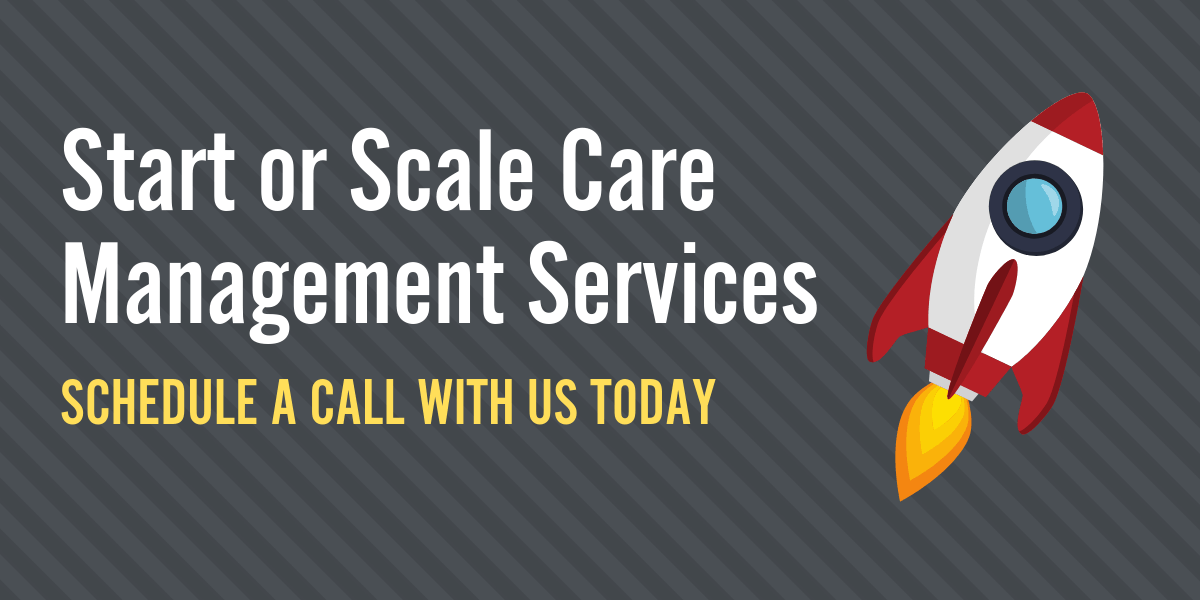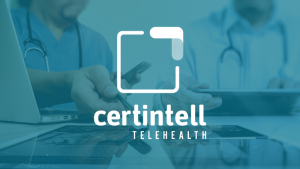This article was originally featured July 15, 2019 on NWRPCA.org
New CMS G0511 codes have created the need for Community Health Centers (CHCs) to implement a care management program, but the time and effort to develop care management programs is costly in time and money. Recent CHC attempts to implement care management services have resulted in failure to enroll, and thus loss of invested time and money. In an attempt to provide solutions to lower care management implementation costs, NWRPCA has partnered with Certintell to offer their Care Management Solutions to be delivered through telehealth as a risk-free program to start or scale care management services in days and not months. Certintell’s Care Management Solutions enable CHCs to overcome the cost of internal implementation of care management services, increase patient quality of care, and eliminate the loss of enrollment to outside care management services.
Ninety percent of U.S. health care spending covers chronic conditions of patients. Treatment of chronic disease makes up a large proportion of public spending, representing 96 cents per dollar for Medicare and 83 cents per dollar for Medicaid.1 Although our nation allocates a significant amount of money toward health care costs, improving the quality measure for patients is surprisingly difficult. Chronic health conditions, such as heart disease, cancer, and diabetes account for a significant percentage of health care costs. Certintell’s Care Management Solutions help manage chronic diseases and high costs with no risk to the CHC.
NWRPCA’s partnership with Certintell provides CHCs an alternative to costly internal implementation of care management services and chronic care solutions. Certintell’s Care Management Solutions allows health centers to eliminate the costs of building an internal program and quickly begin enrolling patients into care management services, including Chronic Care Management and Behavioral Health Integration, and to avoid loss of enrollment to external health systems.
Overview of Care Management
Care management services are a patient-centered care model that is tailored to specific conditions. Whether that includes chronic conditions or behavioral health issues, care management encompasses various factors with the overarching goal of improving patient care and reducing the need for other medical services. Care management service helps patients and caregivers effectively manage their health conditions through behavior change.
Care management in Federally Qualified Health Centers (FQHCs) includes four services for Medicare patients or dual-eligible beneficiaries. The four services include Chronic Care Management (CCM), Behavioral Health Integration (BHI), Psychiatric Collaborative Care Model (CoCM) and Transitional Care Management (TCM).
Chronic Care Management (CCM)
- CCM focuses on behavior change coaching for patients who have two or more chronic conditions. CCM is recognized by the Centers for Medicare and Medicaid Services (CMS) as one of the most critical components of primary care, resulting in reduced spending and better health.2
Behavioral Health Integration (BHI)
- BHI involves a team of primary care and behavioral health clinicians working together with a patient. Practitioners work together with patients using a systematic, cost-effective approach to provide patient-centered care for a defined population.
Psychiatric Collaborative Care Model (CoCM)
- CoCM delivers integrated care for more complex patient behavioral health needs. CoCM is a model of BHI that enhances normal primary care by adding care management support for patients who are receiving behavioral health treatment and include a Psychiatric Consultant. It focuses specifically on patients whose conditions are not improving.
Transitional Care Management (TCM)
- TCM was designed by CMS to ensure that there are no gaps in patients’ health records. TCM serves the purpose of lowering health care costs and most importantly, preventing relapses and readmissions. Care transitions between health centers and providers make up some of the most complex issues in the health care system currently.
An effective care management system can increase patient access to all four services, and include a flexible value-based payment system, effective teams and communication, customized care plans based on patient needs, and trusting relationships throughout the team.3 Increasing CHC capacity to support care management services through telehealth will quickly increase patient access to critical care management services.
Getting Started with Certintell Care Management Solutions
Starting a care management program at an FQHC begins with having the right team in place. Creating the right team includes training staff to serve as health coaches, directly hiring FTEs, or collaborate with an outside entity to embed health coaches. Through telehealth, Certintell embeds Health Coaches in the CHC to deliver care management services. This turnkey approach provides benefits to staff and patients much sooner than efforts at internal care management service development. Certintell’s Care Management Solutions allows the services to be implemented swiftly for immediate enrollment, increased patient access to services, and no loss of revenue.
In-House vs External Partnership
Starting a care management program internally can be an uphill climb. Missteps in CCM implementation have led to failures that range from having thousands of Medicare patients ready for enrollment without being able to consent any, and implementation costing hundreds of thousands of dollars without a positive return on investment. Efficient planning and implementation can be quickly completed with the Certintell’s Care Management Solutions. Recent Certintell successes working with CHCs have initiated patient enrollment within as little as 11 days of system implementation.
Proactive vs Reactive Patient Enrollment
Timing is a critical factor when implementing care management services, particularly with patient enrollment. FQHC patients have the option to consent to care management at many health facilities, and can unknowingly enroll in external health systems’ care management programs. Enrollment in an external health system duplicates FQHC’s enrollment efforts, and results in ineligibility for treatment and billing even when the FQHC is the primary source of health care for the patient. The speed of implementing Certintell’s Care Management Solutions will help to eliminate pre-emptive enrollment by external health systems.
NWRPCA agrees with Certintell that community health centers need to implement care management services for many reasons, whether to close care gaps for patients that have complex health issues, to provide value-based care in advance of major mandates, avoid the loss of eligible patients to external health systems, or to improve overall health outcomes.
Find more information about NWRPCA member benefits at NWRPCA.org or go HERE.
Endnotes
1“Why We Need Public Health to Improve Healthcare – National Association of Chronic Disease Directors.” 27 June 2019, www.chronicdisease.org/page/whyweneedph2imphc.
2“Chronic Care Management Guide Download.” 27 June 2019, www.eqhs.org/Download-CCM-Guide?gclid=EAIaIQobChMIgt6s8raK4wIVkLbACh2_mgBkEAAYAiAAEgJ2G_D_BwE.
3Haefner, Morgan. “5 key components of effective care management for Medicare patients: A recent report released by the Robert Graham Center for Policy Studies in Family Medicine and Primary Care identified five essential parts of effective care management for Medicare policyholders.” 27 June 2019, www.beckershospitalreview.com/finance/5-key-components-of-effective-medicare-care-management.html.




